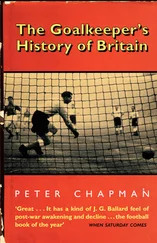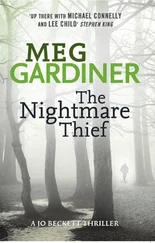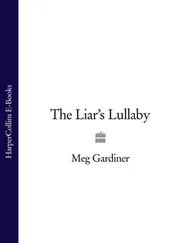‘It’s the women who suffer,’ insisted Mrs Pallas. ‘The man brings the dole in and he’s finished — the woman’s got all the rest.’ When she married him, Mr Pallas was earning £8 to £10 a week: ‘He’s a left-handed ship’s riveter — a craft which should be earning him a lot. There aren’t many left-handed riveters … Many a week he’s given it [his unemployment benefit] to me and I’ve just said, “put it in the fire.” It’s just like an insult to a mother to bring in 33 shillings … I’m not blaming my husband. He’d work if he could get it.’
By the time Mrs Pallas had paid ten shillings for coal, gas and rent, and
money for the allotment rent, for burial insurance, to the clubs for the children’s clothes, for chapel collection, and cigarettes for my husband, I have about ten shillings left for groceries, two shillings for milk, and about three shillings and sixpence a week for food. It varies a few pence, according to whether we have to make money out of food to buy leather for cobbling or spring cleaning and so on … I do the washing every other week because I find I can do a large amount of clothes with the same amount of soap, but it’s tiring. I can’t manage more than one box of matches a week. Many a time we’ve sat in the dark — it is gas light, and we haven’t a penny for the slot maybe, or we haven’t a match.
‘A woman had a full time job in the home in those days,’ remembered John McNamara in Lancaster. ‘It was the blacklead brush to polish the grate. It was the scrubbing brush and a bucket and a floor cloth and a bar of soap [or a donkeystone if they were flagstones] to wash the floors and the tables and the paintwork. And all the paraphernalia to do the weekly washing [often with no running water, washboards to scrub with, blue dollys to make sure the sheets were white, mangling, starching, drying, ironing]. Baking day was Wednesdays. There was a day for everything.’
‘It’s upon the wives of the unemployed that the real burden falls,’ wrote a miner who had been unemployed for eight years by 1934. ‘It means they have to scrounge around for the cheapest food and for anything in the shape of clothes, and what our women don’t know about jumble sales is not worth knowing. And I cannot imagine a more distressing sight than the average jumble sale in these parts.’
As well as cooking, cleaning and washing, women had to juggle almost non-existent money. Getting things ‘on strap’ (credit) from the grocer, balancing one tradesman’s bill against another, putting a penny or two by in a club for clothing or boots, and putting a brave face on it as she paid her weekly visit to the pawn shop.
Women had to work miracles with the dole, or low wages. ‘My father didn’t realise how my mother was having to budget. He wasn’t aware of a lot of things we had to do, my mother and me, to keep the cart on the wheels. He just tipped his money in and thought it did the job. He just pushed his head in the sand,’ recalled Clifford Steele in Barnsley.
Pawn shops were as common as betting shops today. On Monday a woman would pawn her jewellery, often including her gold wedding ring (which she would replace with a sixpenny brass one from Woolworths to stay respectable), or maybe her husband’s watch if he had one, or his only suit if he didn’t need it that week, and would hope that she would be able to redeem them when the money came in on Friday. Then it would be back to the pawn shop on Monday again, until the family’s meagre possessions got too shabby to raise any money against, or even worse, she had to sell the pawn tickets to raise a few pounds, and that would mean the things would be gone for good.
Charles Graham recalled that ‘in almost every street [in South Shields] there was the old woman who offered her services as messenger for those people who were too proud to be seen going into the pawn shop. She would be well known to the pawnbroker and could be trusted. She would get a pound loan, the pawn shop would charge twopence a week until the pawn was redeemed. The messenger would get threepence or sixpence from the housewife … the parcel would never be opened [by the pawnbroker], it was just a way of getting round the law of money lending. The pawn shop was a bank.’ Women would come clattering along the street in clogs and shawls to a pawn shop in Burslem in the Potteries, where unemployment was over 30 per cent in 1931, and stayed high throughout the decade. Its owner ‘used to do very well. He used to reckon that it was the only shop in Burslem that had a queue on Monday morning.’
When there was not enough food to go round towards the end of the week, the woman would often go without herself so that her husband and children had a meal on the table — as Annie Weaving must have done countless times. ‘We are told we ought to eat fruit, but it is very seldom that I can afford fruit … My husband and I always have to suffer if there is anything to buy. We give it all to the bairns and we have bread and marge,’ said Mrs Pallas. ‘I was practically living on bread and potatoes,’ remembered an Aberdeen women with two small children and an unemployed, unskilled husband. ‘But I tried to get something every night for my husband and the girls. Sausages were cheap … the men in the fish [shop] would sometimes give us a bit of fish … In the winter months I walked over to the New Market. You got a great big rabbit for sixpence and we had that every Sunday, all the months that rabbits were in season … But mostly I had potatoes and bread and toast … I’d had the two girlies and then I’d had five boys — all dead-born, and I’m certain it was because of the malnutrition.’
John McNamara remembered how ‘It was a common thing for a housewife, for a mother, to do a hell of a lot of sacrificing. Unknownst to hubby. Unknownst to kiddies. It was nothing for them to say, “Oh, I’ve had mine.” And they hadn’t had a bite. But you didn’t find out till it was too late. A good mother went without many a meal. Kids come first. And husband. She was last though she worked harder than anyone.’
There are few tales of greater poignancy than that of an anonymous mother included in Nigel Gray’s superb compilation of voices of the unemployed: ‘When our baby was born we had to borrow a mattress from next door and spread newspapers on it. I used to feed the baby on a bottle of warm water. We put her to bed in a drawer. We made nappies out of newspaper. When I went before the public Assistance Committee they asked me if the baby was being breast fed and when I said yes, they reduced the allowance for a child.’
In 1935 the body of a Woking magistrate, Francis Wellesley, was found floating face-down in the river Wey. ‘Another Hatry Crash Victim’, decided the headline of a national newspaper, though in fact the death turned out to be an accident rather than suicide. Furthermore, Mr Wellesley had never been an investor in any of Clarence Hatry’s companies. But the dapper, Chaplinesque Hatry, the son of a silk-top-hat manufacturer who was always so well turned out himself that it was put about that the soles of his shoes were polished as well as the uppers, had become — at least to some — the personification of an attenuated British version of the Wall Street crash, when share prices plummeted and many fortunes were wiped out. And indeed it was on the day after ‘Black Thursday’, 25 October 1929, that Clarence Hatry had been remanded to Brixton Prison in South London to await trial on charges of fraud and forgery.
Hatry’s spectacular business career — and its demise — mirrored the boom-and-bust economy of the 1920s. Given the frenzy of concern about speculation, unstable money and the financial integrity of the City of London in the shaky world economy, it was no surprise that when he and his three fellow defendants faced the formidably ‘icy’ Mr Justice Avory in the dock of the Old Bailey in January 1930, the prosecution was led by the Attorney-General himself, Sir William Jowitt.
Читать дальше












